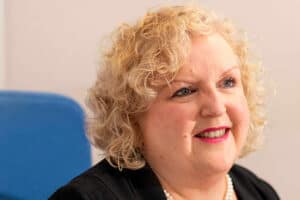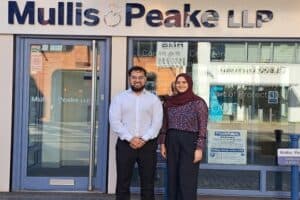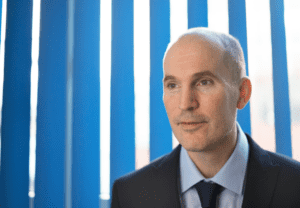Islamic Finance Mortgages
Islamic finance has been developing rapidly in the UK and the government has taken a leading role in its promotion.
Islamic finance is designed to help people purchase homes in the UK in a manner compliant with Islamic law and offers an alternative to the conventional interest-bearing mortgages in the UK market. They are sometimes known as ‘halal mortgages’.
Services also offered in
What is the difference between conventional mortgages and Islamic mortgages?
Under Islamic Law, interest is forbidden so the way a person repays the mortgage is different. Whilst conventional mortgages involve the bank having a legal charge over the property with capital and/or interest payments, Islamic mortgages involve buying a home in partnership with the bank or building society with no interest payments involved.
Under conventional mortgages, the bank will lend you money to buy your house, so you own the freehold or leasehold title of the property and the bank secures its loan through a charge over the property, which is only removed once the loan has been repaid in full, including the original loan amount plus all interest that has accrued.
Under Islamic mortgages, there is no loan from the bank. Instead, it buys the property you want on your behalf and grants you a lease of 99 years so that you can live there as if it is your own home. You must make monthly payments for the duration of the ‘mortgage’, part of which is rent and part is towards buying the house from the bank. Once you have paid enough to acquire the whole property from the bank the ‘mortgage’ will come to an end and the bank will transfer the title to you.
What are Home Purchase Plans?
The Home Purchase Plan (“HPP”) is one of the most popular Islamic finance products available in the UK that is offered to customers by a host of banks and financial institutions.
Under Islamic mortgages, there are three different Home Purchase Plans:
- Ijara (rent only) lease
- Diminishing musharakah (partnership)
- Murabaha (profit)
Diminishing Musharakah (Partnership)
The most common Islamic mortgage is Diminishing Musharakah. In this structure, Islamic banks will purchase the freehold and then sell you a lease for 99 years, to ensure you cannot be evicted like a common tenant and have enough time to pay the mortgage. The bank will own the majority equity in the house (for example 80% whilst you would own 20%). As you continue to live in the property and pay rent alongside your acquisition payments, you will increase your equity until you have 100% ownership of the property and the bank has 0%. The bank will then transfer the freehold to you and the lease will be closed. This structure is commonly used for residential purchases and re-mortgages.
Ijara (rent-only) Lease (similar to an interest-only mortgage)
This HPP is where the bank purchases the property you want to buy and leases it back to you. This works similarly to a traditional interest only mortgage, although the interest is replaced with the rental cost you pay to lease the property. This structure is commonly used for buy to let properties rather than main residence purchases.
Murabaha (Profit)
This HPP involves the lender buying the property and selling it back to you at a slightly higher price. Instead of being charged rent, you buy your home from the bank over a fixed term and pay them in equal instalments over the term. In this structure, you are the homeowner from the outset rather than a leaseholder as long as you keep up with your monthly repayments. This method is more commonly used to purchase commercial properties.
What are the benefits of Islamic finance?
There are many benefits to using Islamic finance as an alternative finance arrangement such as:
- Islamic finance does not compound late payment fees or prepayment fees. They aim to keep the entire process ‘Islamic compliant’ and therefore will not add on late payment fees like some conventional home loan providers do. Instead, they charge a fixed fee which covers late payment and does not serve as a means of profit. Conventional lenders sometimes charge a prepayment penalty to buyers who want to pay ahead of agreed timelines whilst Islamic finance providers do not.
- Islamic banks also share the risk with the buyer in the event of foreclosure. As the bank and the borrower work on a partnership model, Islamic banks do not receive more than the sale price of the house where a conventional lender will expect to be paid in full regardless of the price the home ultimately sells for.
- Islamic banks will only request you repay the value of the property at the time of purchase. They do not increase the repayment value of the property regardless of inflation or the rise in house prices.
Which banks offer Islamic finance?
Whilst there are fewer banks that provide alternative finance arrangements, the most common banks offering Islamic mortgages are:
- Gatehouse Bank
- Al-Rayan Bank
- StrideUp
- Ahli United Bank
Our expertise
With our expertise in Islamic finance, our Conveyancing Team can ensure the process of Islamic mortgage is undertaken smoothly whilst explaining the stages to you every step of the way. We understand that purchasing a property is one of the most stressful and time-consuming experience a person will go through. Our firm aims to relieve our clients of the distress and pressures involved in this process by using our experience and expertise in ensuring that the transaction is completed without any delay or difficulty.
Residential Property Enquiry
Fill out the form and a member of our team will get in touch to discuss how we can help.
Mullis & Peake will use the information you provide in this form in accordance with our privacy policy. With your consent, we may from time to time send you general updates by email or post that we think you will find of interest.This includes notification of upcoming event and updates or alerts containing relevant legal news. You can update your preferences at any time and will be able to easily unsubscribe from anything that you do not wish to receive.
Frequently asked questions
Islamic mortgage lenders should be able to show they’ve received Sharia compliance guidance. Also check that they are regulated by the Financial Conduct Authority.
These products can be more expensive than conventional mortgages because there are higher administrative costs and a smaller amount of lenders available in the marketplace.
Costs and fees are similar to a convention mortgage so will include:
- Legal costs
- Survey and valuation fees
- Stamp Duty Land Tax
- Insurance
Costs and expenses can vary depending on the client’s circumstances. To be provided with a tailor-made estimate please complete the estimate calculator.
In the vast majority of cases, we will be able to act on behalf of your existing mortgage lender to repay your existing mortgage on the sale of a property and on behalf of your new mortgage lender in respect of the purchase of a property.
You can download our costs for conveyancing here.
The fee may vary depending on the agency/person who has referred the work to us and this fee may vary between £150 and £250.
Please be aware that although we charge a fixed fee, we do charge for abortive matters. However, we will only charge for the amount of work actually undertaken.
Mullis & Peake have a specialist team in residential property ready to help you. Contact us online today or call us on 01708 784000.
Alternatively, request a call back to have one of our team contact you at a time that suits.





















